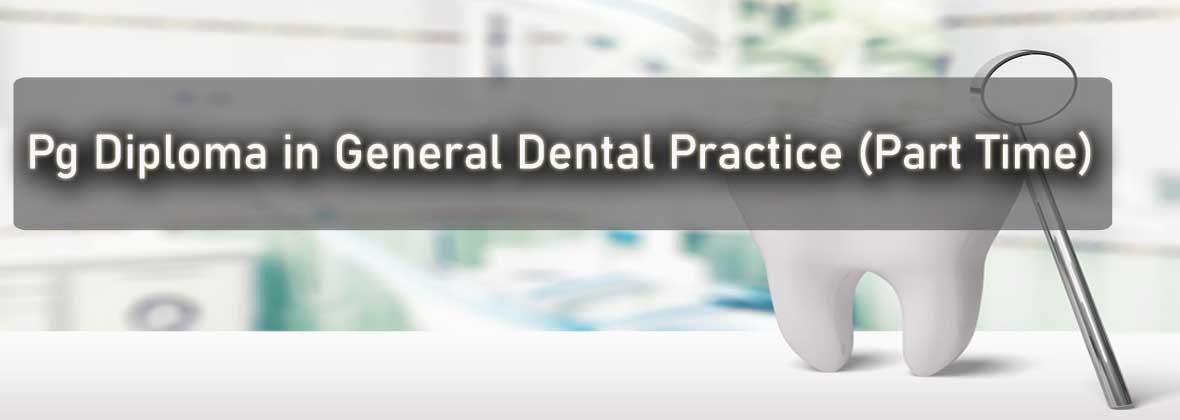
![]()
The Postgraduate Diploma in General Dental Practice (DGDP) was established as a one year full time training programme by the PGIM in 1986 as a joint programme for the hospital dental surgeons and the general dental practitioners (GDPs / private dental practitioners). The aim at that time was to provide an opportunity to enable hospital dental surgeons employed by the Ministry of Health to get promoted to grade 1 in their career ladder and for the GDPs in Sri Lanka to obtain an approved postgraduate qualification which would enable the GDPs to upgrade their knowledge and clinical skills to improve patient care.
PGDGDP will be a hybrid program having an online and face to face training components conducted by the PGIM.
Although the DGDP programme was established sometime back, only few GDPs made use of the training programme and obtained this qualification since the initial format of this programme was unattractive. This one-year programme required attendance on a full time basis which deprived the GDPs of their livelihood for that period whereas the hospital dental surgeons were given full pay study leave. The Board of Study in Dental Surgery decided to rename the Diploma as Postgraduate Diploma in Hospital Dental Practice (PGDHDP) and with the assistance of the College of General Dental Practitioners of Sri Lanka formulated a new Postgraduate Diploma in General Dental Practice (PGDGDP) training programme considering the needs of the GDPs. Given the new technologies that are available for conducting training online, the Board decided to adopt online learning to deliver the course, which would allow GDPs to follow the programme without having to leave their practice.
![]()
On completion of the PGDGDP the trainees should be able to
- Provide personalized, comprehensive oral health care to patients and effective management of common oral health problems in a general dental practice level.
- Manage medical emergencies by proper initial management with appropriate coordination of further care.
- Apply knowledge of clinical, behavioural and social sciences in patient management
- Communicate effectively with patients, family, colleagues and other health care workers and community.
- Promote oral health, provide preventive care and support national health programmes.
- Undertake cost-effective management of practice based on concepts of health economics.
- Maintain appropriate medical records and carry out clinical audits in view of quality assurance in dental practice.
- Critically appraise medical information presented in the literature.
- Demonstrate respect for autonomy, dignity and rights of the patient and family.
- Negotiate medico-legal issues and maintain highest professional and ethical standards.
- Demonstrate self-directed lifelong learning and continuous professional development.
![]()
a) Hold a Dental degree registered* with the Sri Lanka Medical Council.
b) Minimum of three years experience in General Dental Practice, which should be certified by the College of General Dental Practitioners of Sri Lanka and approved by the Board of Study in Dental Surgery.
OR
Completed three years in the Department of Health/ University/ Defense Services certified by the relevant authority and a minimum of one year full time experience in General Dental Practice certified by the College of General Dental Practitioners of Sri Lanka and approved by the Board of Study in Dental Surgery.
A minimum of Three years of experience is needed to join the course. The applicants should satisfy the criteria prescribed in paragraphs (a) and (b) as at the date of closure of applications.
c) Comply with any other PGIM regulations
Please refer to the relevant prospectus for the most up to date information. The prospectus of a particular programme contains official information pertaining to a programme approved by the Board of Management, University Senate and the University Grants Commission